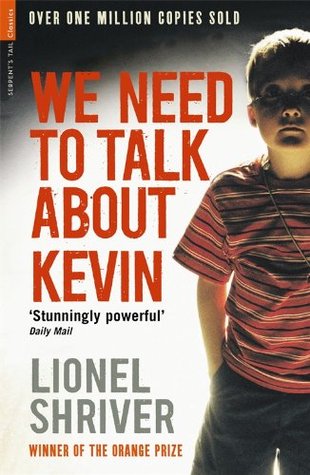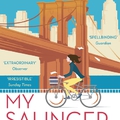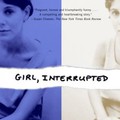Lionel Shriver: We Need to Talk About Kevin
 Eva never wanted to be a mother. Until she reached the age of thirty-something, she lived quite happily as the manager of a thriving company: she spent five months abroad each year, conducted conveniently short affairs with foreign men and in the meantime constructed the picture of the ideal man in her head – the man she would be willing to marry one day. But then suddenly she married Franklin who was the direct opposite of her carefully constructed ideal man: he was a big man, truly, proudly American with brutally honest and simple dreams – a family, BBQ in the garden, doing sports with his son and sometimes going on a trip to some typical American monument.
Eva never wanted to be a mother. Until she reached the age of thirty-something, she lived quite happily as the manager of a thriving company: she spent five months abroad each year, conducted conveniently short affairs with foreign men and in the meantime constructed the picture of the ideal man in her head – the man she would be willing to marry one day. But then suddenly she married Franklin who was the direct opposite of her carefully constructed ideal man: he was a big man, truly, proudly American with brutally honest and simple dreams – a family, BBQ in the garden, doing sports with his son and sometimes going on a trip to some typical American monument.
Eva never wanted to be a mother. She didn’t feel the urge of her motherly instincts, she didn’t swoon at the thought of being a mother, she wasn’t particularly touched by the loveliness and cuteness of her friends’ children and she listened to her friends with a lot of doubt when they told her that being a mother is a miraculous, inexpressible feeling which she can’t understand beforehand but she will understand as soon as she holds her child in her arms.
However, despite all her skepticism, doubt and fear, Eva became a mother. She delivered Kevin into the world – a boy she considered a burden ever since the moment of his conception, a boy she was repulsed by from the moment he was born. And then Kevin went ahead and basically ruined Eva’s life, but not just hers, but everyone else’s nearby, apart from the endlessly naive and honest Franklin. And then Kevin grew up, and a couple of days before his 16th birthday he went on a massive shootout in his high-school and thereby changed the life of his family forever.
Two years passed since then. Kevin’s in prison, Eva visits him every week and spends the rest of her time writing long, soul-dissecting letters to her ex-husband in which she tells him about the way she sees her marriage, her motherhood, her successes in her career and her American nationality.
I didn’t mention that the post contains spoilers since what I’ve written so far is clear from the very first page of the novel, and the remaining 400 pages deal with the questions of why and how, and the questions of responsibility. And even though we get the gist – that is, the fact that a massacre happened which changed everything – the novel features a lot more shocking and heart-wrenching details and it provides the reader with a lot to think about. However, the rest of the post may contain spoilers.
The main theme of the novel is motherhood and the relationship between mother and child. And while Eva faces her innermost thoughts and analyzes her feelings to find out why she didn’t want Kevin in the first place and why she was unable to get up a proper relationship with him, the reader is also compelled to engage in some soul-searching of their own and face their own doubts which might be very similar to those of Eva.
Of course this isn’t easy at all, since the doubts and fears Eva admits to are taboos – it’s not easy to talk about them, and it’s not easy to think about them, either. For instance, Eva has a list of her reasons why she didn’t want to be a mother. This list contains the fear that she won’t be able to travel as much if she has a child, or the fear that she will end up in an inferior social position because of her child. We might say these are selfish, ugly and often childish fears – nevertheless, they are real, and it’s better to talk about them before someone decides to have a child, because – as Eva’s example makes it clear – the doubts won’t evaporate miraculously the moment one’s child is born.
I think this novel is somewhat similar to Cormac McCarthy’s novel The Road in the sense that it must be a very different experience to read this novel if someone already has a child. It may only be my own naive idea, but I think if I had a child, I would perhaps take sides with Kevin and would argue that it was only natural that he turned out this way since he sadly lacked his mother’s love throughout his childhood and sensed her mother’s repulsion and hatred and the fact that she embraced him twice a day only because she had to. I would perhaps argue that a child senses all this and answers with behaving badly just to force others to pay attention to him. (As if all this were that simple and logical.)
If I had a child, I would probably argue that all children respond to love and good treatment, that there is no such thing as a deliberately hostile and spiteful child, and that only Eva is responsible for everything that happened to Kevin and her whole family, because she was such a selfish, cold-hearted, rigid and mistrustful mother.
But I don’t have a child, I’m only an average reader, so I base my opinion on the text. And in the text I see (from Eva’s point of view, of course) that it must really have been an awful experience for Eva to be the mother of Kevin and that Kevin must really have been such an unbearable burden on Eva and on almost everybody else, apart from his father – and based on all this, I think Eva stood her ground rather well.
I don’t have a child, but I know something about the way Eva continuously feels. Of course this is only a miniature version of Eva’s sufferings but while I read the book, I was reminded of some childhood memories concerning my sister. It sometimes happened that I wanted my sister to do something for me but she was simply unwilling to do it. I could argue with her, saying that I did something similar for her just the other day so it would be the proper thing to help me out now; I could beg her to do it; I could promise her something else – but still she wouldn’t do what I asked. And in the end I couldn’t do anything at all about it, just sulk and rave with fury on my own.
And this sulk, rage and immense helplessness is what Eva has to deal with – only not for an hour or an afternoon, but for 18 years. And while she struggles with these feeling, she cannot help but ask some questions: how do you deal with a child who is not interested in anything? Why do adults think that a child is all eagerness to behave well and do something only because it’s the proper thing to do? What if a child is absolutely unaffected by everything his parents can offer him? What’s the use of promising things to a child who just doesn’t care about these things at all? And what’s the point in voicing mysterious threats/promises to the effect that „you will know how everything is when you grow up” when in fact there is no such secret which can only be learned as an adult?
Questions like these have no real answer. And the last couple of pages of the novel shock me in a way similar to how the ending of George Orwell’s Nineteen Eighty-Four shocks me: in the last pages, Eva accepts her fate and starts to love Kevin. A new life is about to start for both of them – but at the same time Eva, or the way she was before, ceases to exist. And I’m not at all sure that this is such a good thing. Perhaps not every woman has to become a mother. And I’m sure it’s not good to become a real mother after 18 years of desperate struggle and after paying such a price as Eva has to pay – and here I don’t mean Kevin’s deeds but Eva’s final resignation and self-annihilation.





